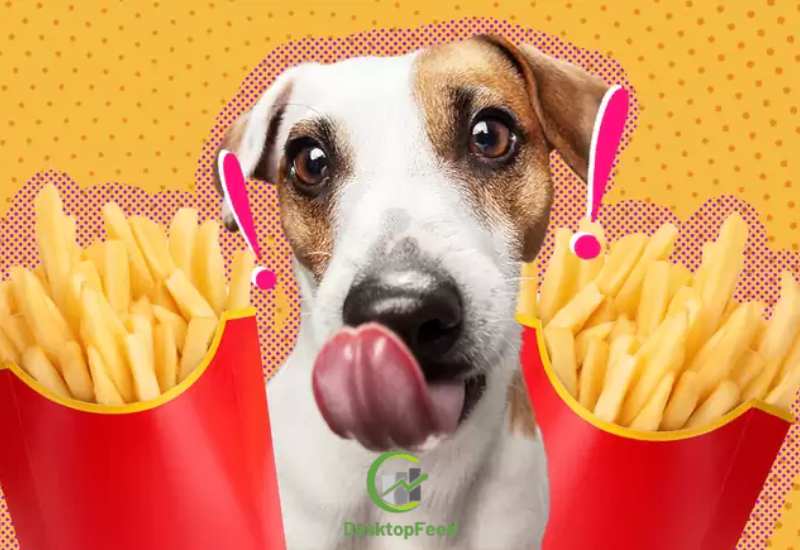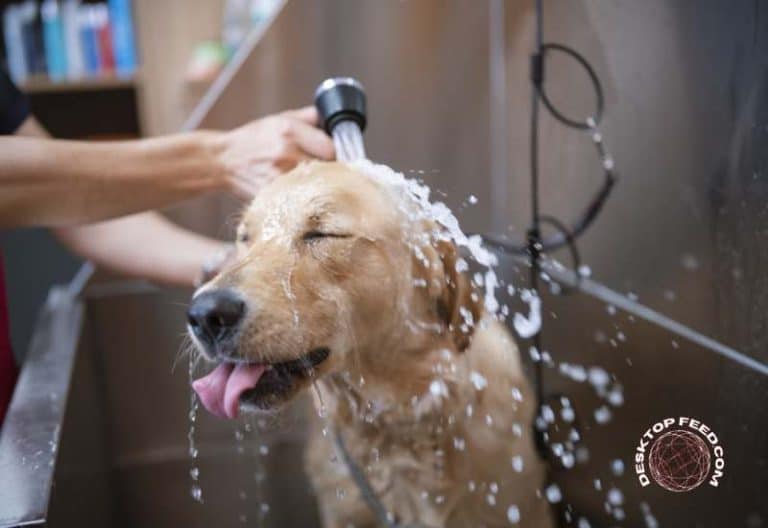Can Dogs Eat French Fries

Why You Shouldn’t Give Your Dog French Fries

There are several health risks involved with serving French fries to your dog. Can Dogs Eat French Fries French fries contain a lot of salt. Too much salt can lead to a variety of ailments, including severe dehydration, high blood pressure and even death. Small dog breeds are especially vulnerable to this problem, so be sure to limit your dog’s intake. Besides the salt, your dog may develop frequent urination and increased thirst. Even the ketchup that comes with these foods can be harmful to your dog.
Can Dogs Eat French Fries? Reasons Why You Shouldn’t Give Your Dog French Fries
Fat causes bloat
In a dog’s body, fats are what cause bloat. This is a medical condition caused by excess intake of foods high in fats, especially those containing large amounts of salt. French fries contain many unhealthy fats that can lead to bloat. Some fats are good for dogs, like canola oil. Others are not so good, and can lead to obesity, pancreatitis, and stomach aches. In addition to these side effects, too much fat can also lead to bloat in dogs, a potentially life-threatening condition.
Food bloat in dogs is not as serious as gastric dilatation and volvulus, but it is still uncomfortable. In severe cases, bloating can lead to veterinary care, and in severe cases, surgery. Food bloat is caused when dogs eat an unusually large amount of food quickly. The stomach fills with air and food, stretching to an unnatural size. Dogs can also bloat by eating garbage, such as discarded food bags.
French fries are high in fat and salt, and contain little nutritional value. While humans can easily handle excess amounts of fat and salt, dogs do not. Hence, eating too much of these foods could result in extreme gastrointestinal distress and pancreatitis. Fats from French fries can also cause bloat in dogs, which is a potentially life-threatening illness for dogs. Therefore, feeding your dog French fries should be a last resort, unless you want to risk their health.
While French fries are high in carbohydrates, they are low in protein and fat. Therefore, excessive consumption of this food will result in weight gain, causing your dog to stop playing and become overweight. This can lead to many health complications, including diabetes and joint pain. Further, excessive salt in the diet can cause a dog to become overweight, causing an ill-looking appearance and poor physical condition. In addition, excessive fat can lead to a dog’s premature death due to heart disease.
While potatoes are not considered toxic, they are not recommended for your dog’s health. Although there are no nutritional benefits in them, too much of these foods can cause your dog to feel sick. They contain fat, salt, and carbohydrates that can cause bloat and even worse, a dangerous condition. However, there are certain foods that are safe for your dog to eat, so there’s no reason to be worried.
Oil causes bloat
Cooking oil is an indispensable ingredient in many kitchens and is used in almost every meal. From eggs to sautéed vegetables, cooking oil is an integral part of a meal. While some cooking oils are packed with healthful fats, others are laden with additives that can cause your body to absorb more calories and result in bloating and weight gain. To avoid the aforementioned problems, consider avoiding these cooking oils.
The problem is not so much the fried food itself, but the oil used to fry it. Fried foods have a high concentration of trans fat, which increases your bad cholesterol levels and lowers your good cholesterol, increasing your risk of heart disease. In fact, according to a study published in the Neurology journal, people who ate the most fried foods were 75% more likely to develop Alzheimer’s disease.
Another cause of bloating when eating food made with vegetable oil is acidity. Foods with high acid content can irritate the lining of the digestive system and cause bloating. Fruits high in citrus and other acidic compounds can be especially problematic. To counteract this, choose low-acid fruits such as berries, bananas, and melons. Tomato sauce contains high levels of fructans, which attract gases. Instead, replace tomato sauce with a sauce made with olive oil or pesto.
Another common cause of bloating is the intake of refined carbohydrates. Refined carbohydrates, especially potato chips and fast-foods, slow down digestion and leave you with extra gas and bloating. So, try to limit your intake of these foods. However, keep in mind that you should avoid diet sodas and carbonated beverages. As much as possible, drink water and avoid sugary sodas. These are also high in sodium and can lead to uncomfortable bloating.
Salt causes bloat
Although you probably don’t give your dog french fries, you should know they are not healthy for your pooch. While french fries are tasty, they are extremely high in sodium and fat, and too much salt can cause an upset stomach or dehydration. Additionally, too much salt can cause sodium ion poisoning. Here’s how to tell if your dog is suffering from salt poisoning.
The biggest problem with French fries is that they’re high in fat. Even though they’re not unhealthy for humans, they’re bad for your dog’s digestion. These potatoes also contain a high level of salt. Your dog will experience bloat and gastrointestinal distress if they eat a large amount of french fries. Luckily, there are healthier alternatives to French fries. Try these tips to keep your pooch healthy.
The symptoms of salt poisoning in dogs are often hard to detect. Some dogs may suffer only mild stomach upsets, and small amounts of the food can be completely harmless. However, large amounts of salt can result in dehydration and a heightened risk of kidney failure. If you suspect your dog may have suffered from sodium poisoning, visit your veterinarian immediately. If you suspect your dog has bloat, the symptoms include pacing, panting, drooling, and abdominal pain.
Another cause of bloat in dogs is excessive intake of oil. Although some oils may be beneficial for your dog, most are not. French fries are typically prepared in vegetable oil or canola oil, which contains unhealthy fats. The two types of fats that your dog shouldn’t eat are saturated fats and trans fats. The latter can be deadly to your dog. Therefore, avoid giving your dog french fries if you want him to be healthy.
Instead of French fries, try giving your dog sweet potatoes. They contain fiber and are a good alternative to the fried food. Sweet potatoes also contain dietary fiber, which helps with digestion. As an added bonus, sweet potatoes can help your dog avoid cancer and heart disease. So, when in doubt, give your dog sweet potatoes instead. Just make sure you consult your veterinarian first! Don’t forget that fries are not healthy for dogs, and they’re not good for you either!
Cheese causes pancreatitis
Cheese is not poisonous to dogs, but too much of it can lead to pancreatitis, a serious illness. In extreme cases, your dog may even die from pancreatitis. In addition to French fries, cheese is also harmful to other parts of the digestive system, including the intestine. Fortunately, many brands of cheese are low in fat and sodium, and are safe for your dog to eat. However, some types of cheese contain ingredients that are toxic to dogs. If your dog has had a reaction to cheese, you should consult your veterinarian to determine if your dog has an allergy.
Moreover, cheese is an unhealthy fat that causes anemia in dogs. These foods can result in bloating and abdominal pain, and can result in a surgical emergency. If you feed your dog with cheese-laden fries, you may also notice your pup’s inappetence, vomiting, and diarrhea. In extreme cases, your dog may even develop pancreatitis, which will be very painful and can result in a loss of appetite.
To reduce the workload on the pancreas, make sure you feed your dog a low-fat diet. High-quality animal protein ingredients are the best sources of protein. In addition, avoid foods high in starch and sugar. A low-carb diet requires less work from the pancreas. Avoid foods with starchy fillers and add-ons. Lastly, try to avoid any foods that have any added sugars, as these always add to the overall carbohydrate level of a food.






